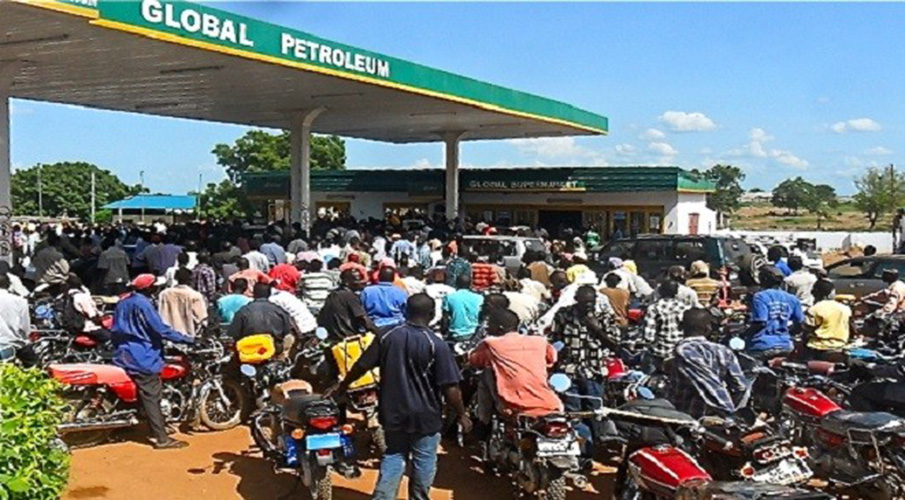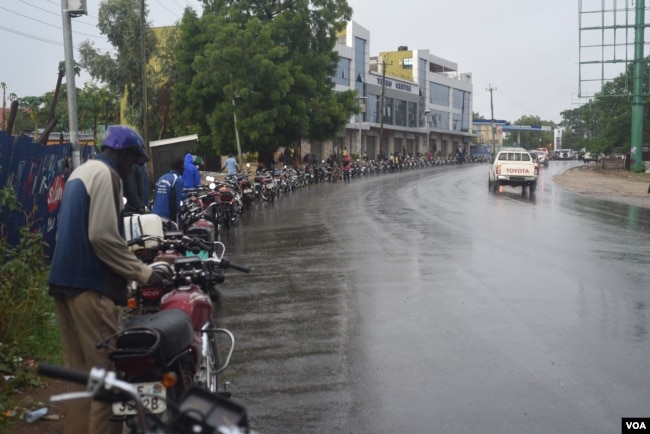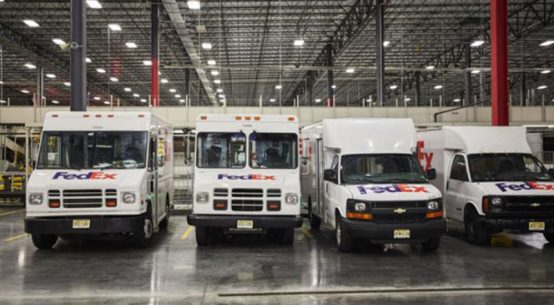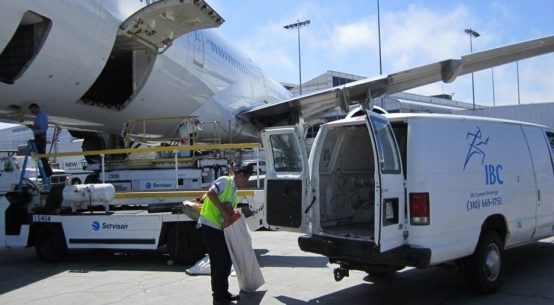
The fuel crisis that has been plaguing Sudan since March has led to an almost entire stop of traffic and public transport, especially in the periphery of the country. Officials attribute the scarcity of fuel to the corruption in the country.
“The Sudanese call the ongoing fuel scarcity ‘katma’ [suppression, stifling], which means that the crisis has reached its limit,” an angry listener reported from Khartoum.
“We are unable to move within the city or to other places. Buses are standing idle as the owners cannot afford the ridiculously high petrol and diesel prices at the black market,” he complained.

The fuel crisis prompted a number of car owners to perform their Friday prayers at the Petro-Energy petrol station, next to the Military Intelligence offices in Khartoum. Activists took pictures and videos of them and posted them on social media to contradict Sudanese officials who claimed the crisis has been solved.
Prices
The transportation in many places in Darfur has stopped entirely because of the depletion of fuel.
“The black-market price of a barrel of petrol ranges from SDG 9,000 ($ 320*) to SDG 14,000 ($ 500) and diesel between SDG 7,000 and SDG 9,000,” a car owner reported from El Fasher, capital of North Darfur.
He said that the scarcity of fuel led to skyrocketing prices of basic commodities. “The price of a [100kg] sack of millet rose from SDG 1,500 pounds to SDG 2,100, and a [100kg] sack of sorghum from SDG 1,400 to SDG 2,000. We now pay SDG 1,500 ($ 53) for a [50kg] sack of sugar.”
In eastern Sudan, the price of a bus ticket from El Gedaref town to El Galabat jumped from SDG 17 to SDG 50. A listener reported from Doka that all grain mills stopped working.
“The Sudanese call the ongoing fuel scarcity ‘katma’ [suppression], which means that the crisis has reached its limit.”
In Atbara in Nile River State, the price of a ticket from Atbara to Khartoum rose from SDG 100 ($ 28) to SDG 250.
Corruption
The deputy director of the National Intelligence and Security Service (NISS), Jalaleldin El Sheikh, pointed to “a defect in the economic system” during a visit to Nyala, capital of South Darfur. He further accused “certain corrupt circles” of exploiting the fuel crisis for their own interests.
According to former Finance Minister Abdelrahim Hamdi, the country’s economic crisis is caused by the widespread corruption in the country. “The fat cats are known by name. They control the entire sugar and cement trade in Sudan,” he told reporters in Khartoum on Friday.
The former minister expects the economic crisis to continue if economic and political freedoms are not restored.
Refineries shut
An employee of El Jeili Refineries north of Khartoum that stopped operating a month ago because of annual maintenance, attributed the scarcity of fuel to the reduction of quotas of petroleum products distributed to companies.

“The crisis will most probably continue,” he told this station. “I doubt the Ministry of Oil will be able to meet the consumption needs after the government’s stocks decreased.”
In December last year, economists predicted a serious fuel crisis after the final decommissioning of the Port Sudan refinery, and the shutdown of El Jeili refinery for maintenance in early March.
Food security
Farmers in Sudan, especially in the eastern and central parts of the country, have warmed for harvest failures because of the scarcity of fuel.
Members of El Gezira and El Managil Scheme, south of Khartoum, reported to Radio Dabanga two weeks ago that owners of tractors increased the lease price to be able to cope with the increase of the fuel prices.
In El Gedaref, crops are in danger because of the lack of fuel needed for the irrigation pumps.
“The sorghum harvest is fully paralyzed because of the ongoing lack of diesel needed for our [harvesting] machines. The irrigation pumps are stalled for the same reason, which means that the cultivation of vegetables this year will almost certainly fail,” a farmer told this station.
Owners of orchards and vegetable farms in South Kordofan fear they will lose their crops because of the lack of fuel needed for the water pumps.

“The sorghum harvest is fully paralyzed and the cultivation of vegetables this year will almost certainly fail.” – Farmer in El Gedaref
In its Early Warning Early Action report on food security and agriculture for April-June 2018, the UN Food and Agriculture Organization (FAO) confirmed that the continuing scarcity of fuel is threatening the 2018-2019 agricultural season.
The Famine Early Warning System Network (FEWS NET) reported in its latest update that the “continued impact of the deteriorating macro-economic situation in Sudan has been exacerbated by the fuel shortages across the country between late March and the beginning of April 2018. This has led to high transportation costs, which resulted in high prices of food and non-food items across different parts of the country”.
FEWS NET predicts a decline in the food security situation in South Kordofan, Kassala, and North Darfur between June and September.
Humanitarian Aid
The fuel shortages are slowing down humanitarian operations as well.
The UN Refugee Agency (UNHCR) reported in its latest update on the situation of South Sudanese refugees in Sudan that the lack of fuel across Sudan, which worsened at the end of March, is affecting response logistics.
Media
In end April, the National Intelligence and Security Service (NISS) prohibited the press in Sudan to publish any information related to the fuel crisis.
In a directive to the editors-in-chief of newspapers, the NISS instructed them not to cover the crisis, protests, and demonstrations but “to be satisfied with official statements issued by the government on these topics”.
* Based on the indicative US Dollar rate quoted by the Central Bank of Sudan
Performing Friday afternoon prayers while waiting in a fuel station in Khartoum, May 4, 2018 (RD)









